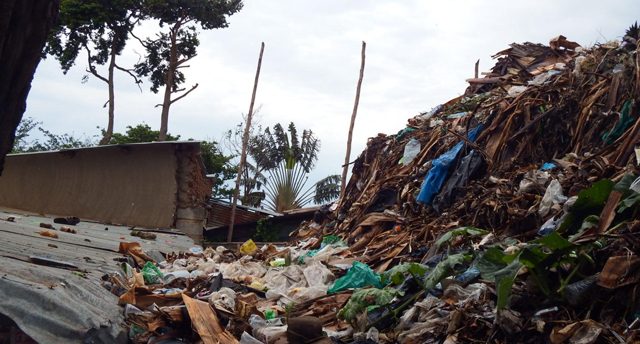
Kampala, Uganda | THE INDEPENDENT | The management of garbage remains a challenge in the newly created cities.
The uncollected garbage or litter is common on the streets, in the corridors of buildings, and clogs drainages whenever it rains hence causing unprecedented floods.
Despite the expansion of their boundaries, the cities are yet to come up with proper garbage management plans and the situation has now worsened with the increase in population sizes.
In Mbale for example, the then municipality failed to implement the five-year garbage management plan due to lack of funds especially local revenue.
The city currently produces 180 tons of garbage, far much higher than the 150 tons that the municipality produced.
According to Khatuli Waniaye, the Mbale city deputy town clerk, the absence of garbage trucks has been the biggest challenge in managing the garbage. He is however optimistic that the Ministry of Lands is in the process of providing the trucks that will address the garbage problem.
He says that the city has often failed to manage the garbage due to the poor revenue collections saying that the revenue helps in facilitating the garbage collectors, fuel, and management of the dumping site among others.
Mafabi Mutwalib Zandya, Mbale city interim mayor says that the then municipality had planned to raise 3 Billion Shillings as local revenue which would help in the management of the garbage, but as of the end of the third quarter, they had only raised 700 Million Shillings.
Zandya however blames the residents of the town for recklessly dumping garbage anywhere in the town.
In Masaka city council, records indicate that the town generates at least 100 tons of garbage each month which requires close to 46% of the annual budget to cater for its proper management.
Pauline Nabadda, the Masaka city environment officer explains that following the government ban on the collection of daily levies on taxi operators, Masaka municipality lost local revenue source hence struggling to meet the costs of offering social services including the collection of garbage.
Godfrey Kayemba, the interim Masaka city mayor says that besides the local revenue shortfall, the urban authority does not have the required garbage trucks.
He says that the city has only one worn-out garbage truck, which can hardly meet the underlying demand.
Kayemba however indicates that the executive committee approved the idea of privatizing garbage, a model that will entirely offload the urban council, the responsibility of collecting garbage and instead pass it onto a private firm that will charge residents for the service.
In Jinja, the council resolved that business owners and dwellers within the central business district should pay a monthly garbage collection fee of 5,000 Shillings.
However, the city’s spokesperson Rajab Kiito says that they plan to revise the policy to favour the newly annexed areas of Bugembe, Budondo and Mafubira where residents lack orientation on modern garbage waste management.
Soroti city has for over three years failed to utilize the multi-million shillings garbage decomposing plant meant to address the problem of waste management.
Twelve years ago, Soroti municipality signed a memorandum of understanding with the World Bank to construct a garbage composting site at Aminit parish in Soroti City East division to control the emission of gas into the atmosphere.
Margret Akia, a resident of Pamba ward in Soroti City West division says they now pay some porters to collect garbage in the compounds.
“Each household in our area pays at least 1000 shillings to the porter to pick garbage but we don’t know where he dumps it. When you move around is when you notice the presence of garbage in some corners”, he said.
Soroti city council generates up to 96.1 tonnes of solid waste, about 70% of which is organic waste.
Elizabeth Ingram, an American of the Sozo International Ministries engaged in environment projects in Mbale city says that there is a need by the authorities to sensitize the public on garbage management.
She says garbage management is entirely the responsibility of individuals who produce it to know the importance of proper garbage disposal.
*****
URN
 The Independent Uganda: You get the Truth we Pay the Price
The Independent Uganda: You get the Truth we Pay the Price


